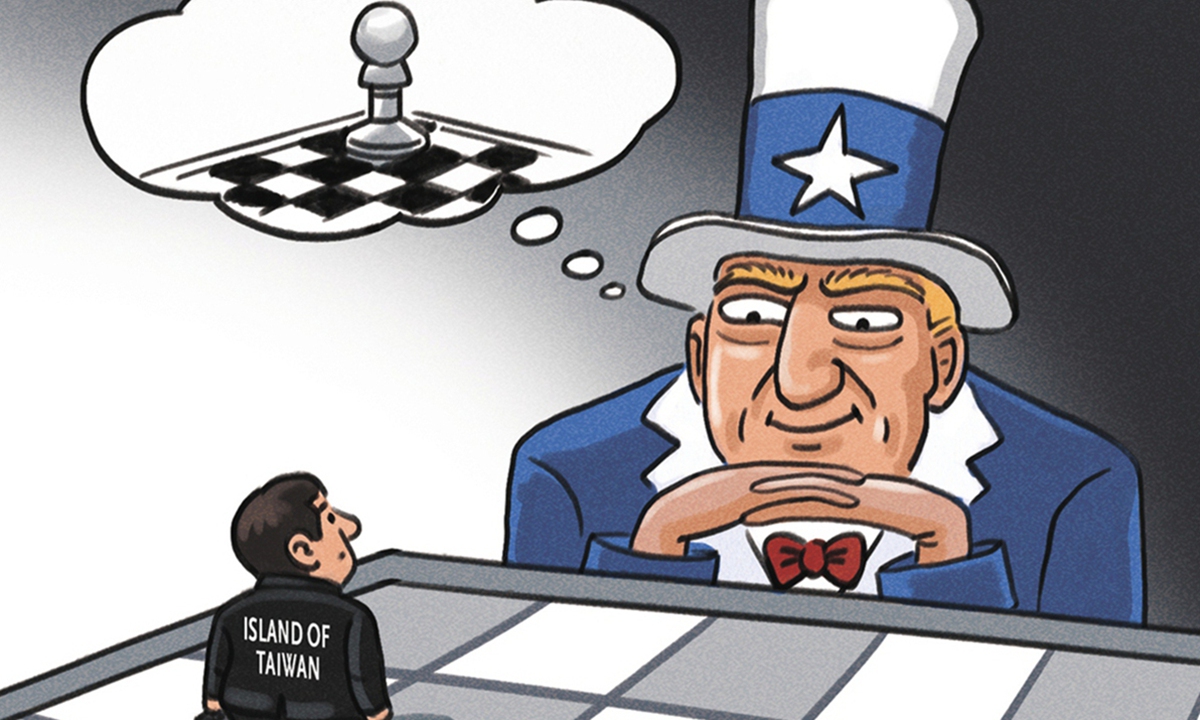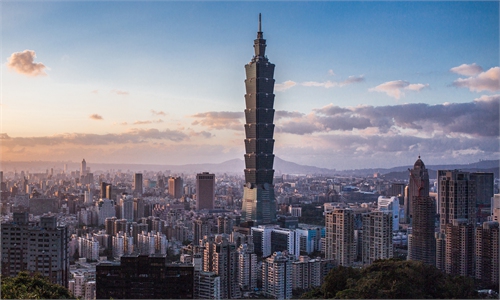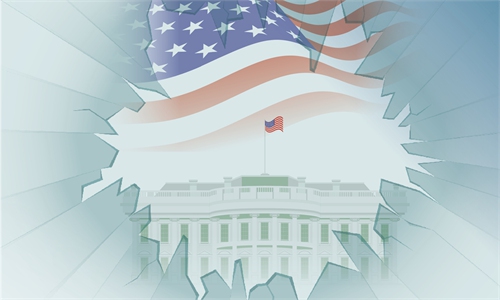A Taiwan without ‘allies’ would mark failure of US policy, but can US stop the trend?

Illustration: Liu Rui/GT
Cutting all "diplomatic" ties would "free Taipei from an unwinnable competition and refocus attention on what really matters: reducing China's coercive power by strengthening relationships with powers that can truly help." This is suggested by Derek Grossman, a senior defense analyst at Rand Corp and former intelligence adviser at the Pentagon, in an opinion piece entitled "Taiwan would be better off alone," published on Nikkei Asia on Sunday.The one-China principle is a widely recognized norm in international relations and a common consensus among the international community. As part of China, Taiwan does not possess any right to engage in diplomatic ties with other countries. Against this backdrop, Grossman's rhetoric on Taiwan's "diplomatic ties" is inappropriate. The 14 countries that still maintain so-called diplomatic relations with the island only do so for short-term benefits.
Grossman's view shows he realizes that the "cash diplomacy" by the Democratic Progressive Party authority in Taiwan hasn't taken effect or been recognized by the international community. He is aware that Taiwan's remaining "allies" may re-evaluate their foreign policy toward the Chinese mainland and the Taiwan island, then make a rational choice. Under such circumstances, he would believe that Taiwan's attempts to expand international space should be more pragmatic and concrete, with less focus on maintaining diplomatic ties.
Despite the suggestion to cut all diplomatic ties, Grossman does not negate assisting Taiwan island to expand its international community. He underlines to relocate Taiwan's resources to other fields, in a bid to realize the expansion of its space on international arena. Such an idea is partially consistent in the US strategic community. The US will continue to lend a helping hand to Taiwan in this regard while internationalizing the Taiwan question.
But cutting all diplomatic relations is just a suggestion held by individual analysts, rather than an official stance. Washington is anticipated to continue piling pressure on Taiwan island's "allies," hoping to retain the existing relationship with the island.
From a US perspective, a Taiwan without diplomatic allies would mark the failure of the US' policy toward the island. If the US can help Taiwan maintain a certain number of "allies," it will have leverage in hindering China's peaceful reunification. It's also a proof that there are still some international forces on the Taiwan side.
The scholar also points out that Taiwan could "reinvigorate its diplomacy in unofficial settings to improve other nations' understanding of its problems," as it did by participating in the US-led "Summit for Democracy." Taiwan may be able to speak out with opportunities spearheaded by the US, however, it will be difficult to do so. As the international community is fully aware, the US is adopting a unilateral approach without an international consensus, going against the bilateral consensus between China and the US, including the one-China principle and the Three China-US Joint Communiqués. Such gross interference in China's internal affairs is difficult for the US to promote, both morally and legally.
The US has played the Taiwan card more frequently with the intent of containing China, but to little effect. China's development will not be disturbed by the Taiwan question. On the contrary, a Taiwan island with which no country maintains "diplomatic relations" would be of less significance in strategy for the US and will be likely to be discarded.
Nevertheless, the US will not abandon the Taiwan card during the Biden administration and will probably even boost the importance of Taiwan island, since the US does not have enough cards to play, especially useful ones, in its hands. Compared with the cards of "human rights" or "economy and trade," the Taiwan card could provoke China the most and is the least likely to hurt the US itself.
The Taiwan island has to understand it cannot gain international recognition by heavily depending on the US or playing old tricks against the Chinese mainland. These moves will trigger repulsion among some regional countries. The world is worried about whether there will be a crisis between China and the US because of the Taiwan question. The international community is reluctant to see a new cold war or even a "hot war" between Beijing and Washington. As all actors look forward to a peaceful resolution of the Taiwan question, there is no other path left for Taiwan but to work with the Chinese mainland in order to truly gain international respect.
The author is a Beijing-based expert on China-US relations. opinion@globaltimes.com.cn



